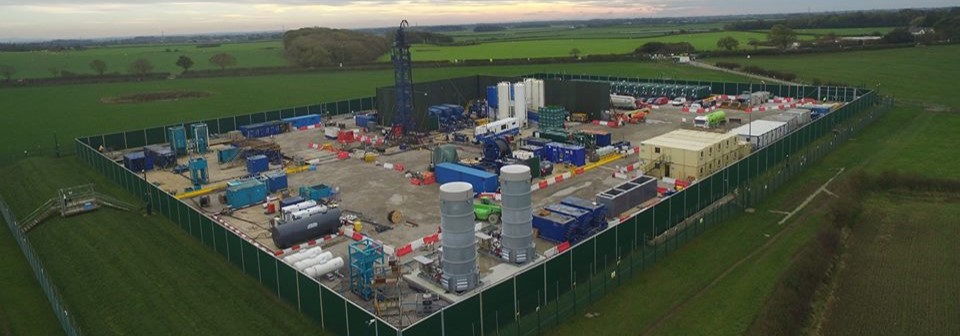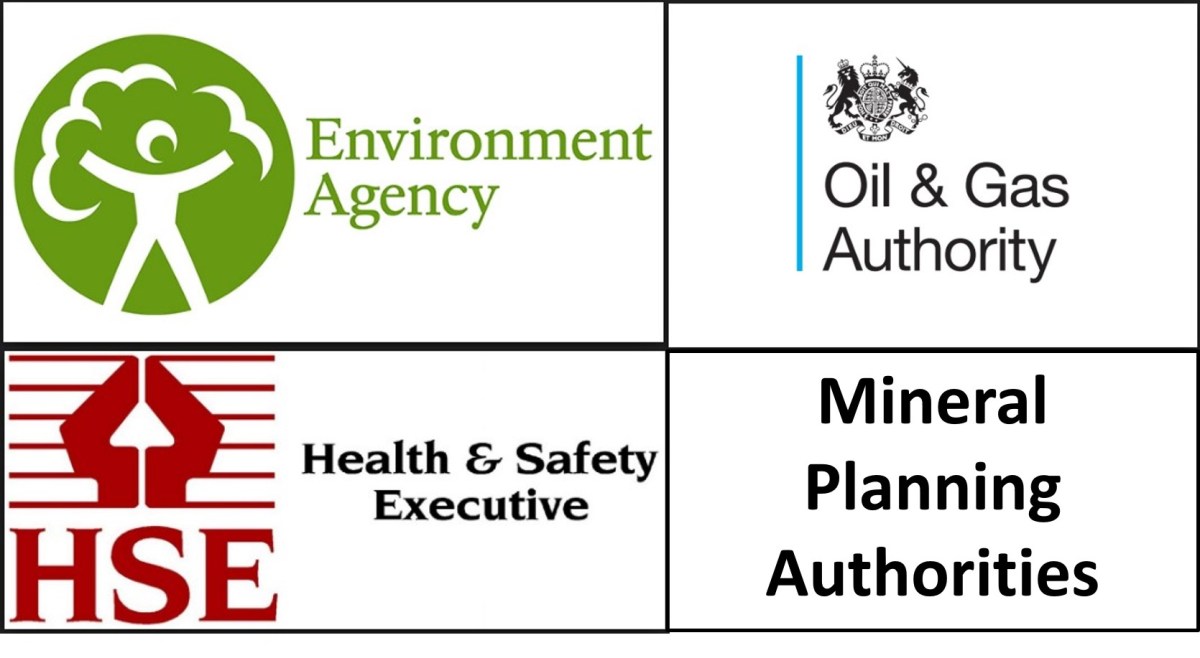
Regulation of the UK onshore shale industry is “lax, fragmented and frequently incompetent”, a new study has concluded.
The journal paper by emeritus Professor David Smythe, a leading critic of fracking, says a lack of geological expertise among regulators risks “unsound decisions and environmental damage”.
It argues:
“UK regulation of the subsurface aspects of onshore unconventional hydrocarbons is very far from being of gold standard; it is woefully inadequate”.
The 60-page paper, for the peer-reviewed International Journal of Environmental Research and Public Health, is based on 18 case studies of UK onshore oil and gas sites and licences.
They include Cuadrilla’s shale gas operation at Preston New Road in Lancashire, where fracking-induced earthquakes in 2018 and 2019 prompted the government to impose a moratorium on hydraulic fracturing in England.
The review also highlights examples of what are described as “severe geological errors”, as well as failures to comply with licence obligations, breaches of conditions, poor record keeping, conflicts of interest and misleading descriptions of operations.
Professor Smythe said:
“The case histories demonstrate a lax, fragmented, and frequently incompetent regulatory regime which has no overarching geological remit or understanding and which seems to be driven by the government’s directives.”

He criticised the work of all four main regulators: the Oil & Gas Authority (OGA), which issues licences and monitors activity; the Environment Agency, which grants environmental permits; mineral planning authorities (MPAs) at county councils or unitary authorities, which give planning permission; and the Health and Safety Executive (HSE), which approves well design and monitors site operations.
The industry’s record was defended to DrillOrDrop by the OGA and UKOOG, an organisation representing onshore companies. See Reaction
“Lack of expertise”
Professor Smythe said insufficient experience and knowledge of the industry was a key flaw in onshore regulation:
“the depth of required expertise is either lacking, and/or is distributed in such a manner between the various regulators that sound decisions may not be arrived at. Furthermore, whatever the decision, no one agency will take responsibility.”
He said earth science personnel were unlikely to have sufficient experience and knowledge of the industry to “scrutinise effectively” the geological content of planning applications for unconventional oil and gas planning applications.
In MPAs, competence on geology had “evolved little in the last decade”, he said. As a result:
“a planning decision may therefore be overly dependent on what the developer chooses to disclose about the geology”.
Where MPAs had sought external advice, the result had “proved poor”, he said, and experts may have been recommended by the developer, giving rise to conflicts of interest.
“Gaming the system”
Professor Smythe accused operating companies of taking advantage of regulators’ lack of knowledge:
“The operators have learned to game the system by providing progressively less geological information and by the use of misleading or anodyne geological descriptions, avoiding words like fracking or shale.”
As a result, he said:
“the regulators let inadequacies in geological understanding, and even mendacious geological interpretations by hydrocarbon operators, slip through the net.”
He warned that if geological pathways were not properly understood and mitigated they may lead to long-term pollution of ground and surface water, as well as methane and hydrogen sulphide emissions.
The Environment Agency and the Scottish Environmental Protection Agency [SEPA] were “particularly inadept” at addressing major geological inconsistencies and errors, he said. Several permits had been issued in “clear disregard of environmental risks”, he added.
Professor Smythe said there was a “history of inadequate record-keeping” by the HSE and EA at Brockham, Horse Hill and Leith Hill sites in southern England, which “works to the advantage of the developers”.
He concluded:
“even if no significant contamination or damage has been detected to date … it does not imply that it might not arise in the future; nor does it imply that regulation has been successful to date”.
“Unmet obligations”
Professor Smythe said some operating companies failed, without sanction, to meet ambitious work commitments they agreed to under oil or gas licences.
“The OGA allows licence obligations to lie unfulfilled. No sanctions on the licensees are ever applied and there appears to be no effective means of cancelling the licences of inadequately performing operators.”
He cited a work programme agreed by Ineos, which included 1,363km2 of 3D seismic surveys:
“Ineos committed in 2017 to undertake within five years some 1363 km2 of 3D, in areas where the entire UK onshore hydrocarbon industry had only achieved 1969 km2 in the previous 20 years—this target is logistically unrealistic, even if finance is not a problem.”
Reaction
A spokesperson for the OGA said:
“It is regrettable that we were not invited to contribute prior to publication of this report in order to correct any misapprehensions or misunderstandings about our role and our actions within the industry. However, we will read its contents with interest.
“The OGA regulates the licensing of exploration and development of England’s onshore oil and gas resources, and it has strict controls in place to ensure that operators manage the risk of induced seismicity from such operations. The OGA issues well consents, development programme approvals, completion of work programme approvals and production consents.”
A spokesperson for the Environment Agency said:
“We take the environmental risks associated with oil and gas exploration and production very seriously, including shale gas fracking.
“All the sites we regulate must meet the highest environmental standards in order to protect people and the environment. If the activity poses an unacceptable risk it will not be permitted.”
The EA said any permit breaches or environmental impacts at oil and gas sites would be investigated and would be subject to enforcement and, if necessary, sanctions. It said it worked closely with other regulators to ensure that all onshore oil and gas exploration was effectively regulated to manage environmental risks.
Ken Cronin, chief executive of UK Onshore Oil and Gas, which represents the industry, said:
“From leading academics and universities to multiple planning authorities, regulators and operators, it seems that no one is immune from the author’s criticism. Unfortunately, while the behavioural assessments are plentiful in this paper, actual evidence of harm to the environment is not.”
DrillOrDrop also invited the Local Government Association, representing MPAs, to respond to the paper.
Categories: Regulation, Research, slider

It looks like a dead duck and it’s not gone quack in a long while. Even when it did, it only went quack crack oops.
Reblogged this on Wessex Solidarity.